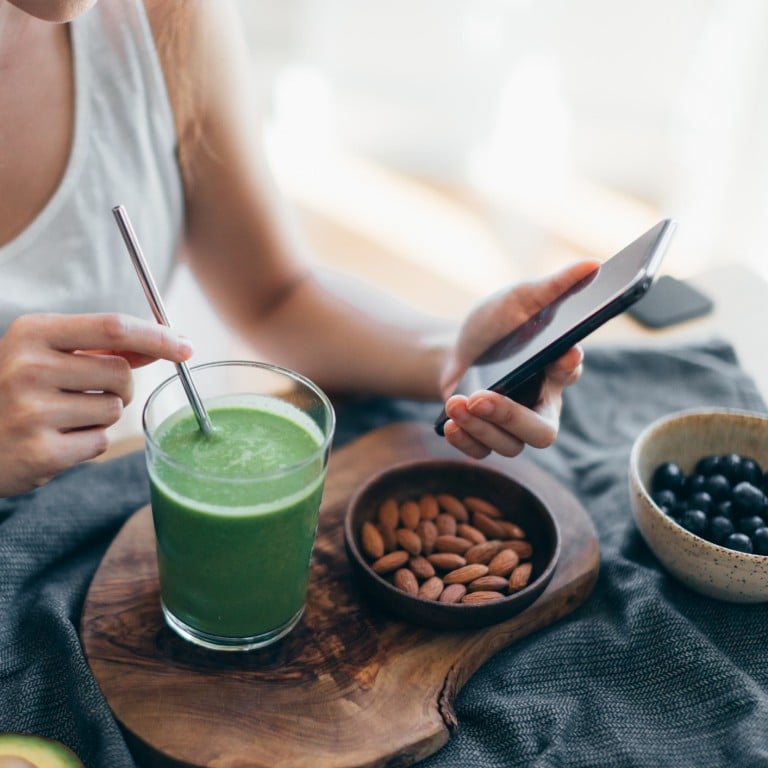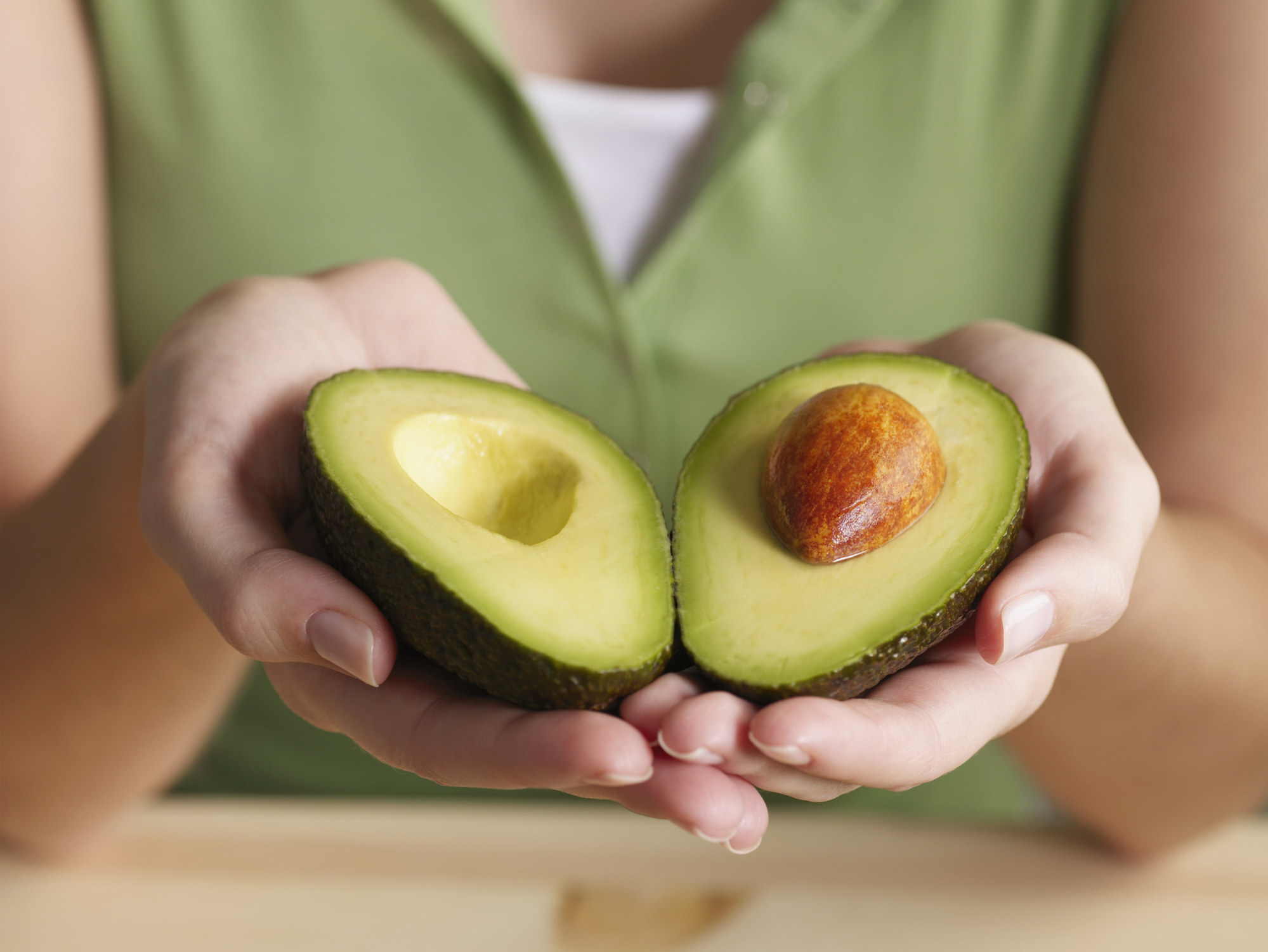
Want to lose that holiday weight? 8 tips to trim down safely and keep the kilos off, from eating whole foods to drinking water
- Skipping meals or fasting is not a safe or healthy way to drop the extra kilograms you gained over the festive season
- Experts suggest, for example, that we eat whole, unprocessed, fibre-rich-foods and chew them slowly; make healthy snack choices; stay hydrated; and plan meals
As we approach the Lunar New Year festival, some of us might still be trying to lose the weight we gained over the Christmas holidays – or in the latest coronavirus lockdown.
It’s tempting to go on short-term fasts to shed extra kilograms quickly, but drastically cutting calories isn’t healthy or safe, and can leave you feeling lethargic and cranky.
Studies suggest it’s important to still eat wholesome and balanced meals, increase your physical activity so you’re getting at least 30 minutes of exercise a day, enjoy enough good-quality sleep every night, and manage your stress levels.
Consider working the following eight tips into your weight-loss plans to trim down in a safe way – for good.

1. Avoid fad diets
These are often low in calories, so you’d essentially be starving yourself. This may lead to overeating and even more weight gain, says Karen Chong, a dietitian at Hong Kong’s Matilda International Hospital.
How overweight couple lost 59kg in a year and ran a half marathon
“Such diets may result in quick weight loss, but the weight is mostly water and when you resume eating normally you’ll just put it back on.”
“Low-calorie diets also leave you hungry, causing you to binge on unhealthy foods or overeat to satisfy your hunger.”
Eating this way isn’t sustainable because the body needs energy, in the form of glucose, to function. Without it, your blood sugar levels dip and you may feel tired and irritable and find it hard to concentrate. Your metabolic rate will also slow down.
Diets don’t work, here’s how to keep the weight off, say experts
Avoid cutting out whole food groups, Chong advises. This deprives you of nutrients, which can negatively affect your health. For example, if you eliminate starchy vegetables, whole grains and fruit from your diet, you’ll miss out on dietary fibre, which is important for gut health and preventing constipation.
2. Choose fresh whole foods
Convenience foods and ready-made meals are usually high in sugar, salt and/or fat and additives your body doesn’t need.

“Their nutrient levels are also relatively low compared to their whole food counterparts, so they don’t offer you very much for the calories they contain,” says Philip Watkins, a naturopath at the Integrated Medicine Institute in Hong Kong.
“They often have the types of artificial or added sugars that prime our body for weight gain by increasing insulin levels. They can negatively affect our gut microbiome and decrease feelings of satiety, ultimately fuelling weight gain.”
It’s best to focus on whole, unprocessed foods, but if you must include a few processed ones, make sure they are low in sugar, salt and fat.
Her health problems vanished after adopting a whole food plant-based diet
3. Chew your food slowly
As a child you may have been told to chew your food slowly and thoroughly instead of wolfing it down. And with good reason.
A new study by Waseda University in Japan provided a causal link between chewing and diet-induced thermogenesis (DIT), which refers to increased heat generation in the body after consuming food. This connection is important because DIT helps prevent weight gain.
Try mindful eating – and enjoy a better relationship with food
The researchers found that taking your time to taste the food in your mouth, and chewing it slowly before swallowing, increased DIT. While the effect per meal was small, the cumulative effect could be quite substantial.
The results of the study appeared earlier this month in the journal Scientific Reports.
4. Eat healthy snacks
Chong recommends choosing high-fibre snacks that quell your hunger but are low in fat. Examples include a baked potato topped with veggies, a bowl of oatmeal, a wholemeal sandwich, 1oz (28g) of unflavoured nuts, fresh fruit and Greek yogurt.
Carcinogens found in all 60 biscuit types tested by Hong Kong consumer watchdog
5. Load up on fibre-rich foods
“Whole, high-fibre foods can help with regulating blood sugar and reducing appetite,” says Watkins. “You can also eat a lot of them and still lose weight.”
In fact, a review of 44 studies, published in 2013 in the Journal of the American College of Nutrition, found this type of fibre was the only form that successfully contributed to weight loss over the long term.
Beans, bloating and gas: why you should give peas a chance
6. Plan your meals in advance
“We tend to make poor food decisions when we’re hungry and have nothing healthy on hand to eat,” says Chong. “I recommend planning meals ahead and maybe prepping a few and storing them in the fridge. Then, come mealtime you won’t be reaching for something unhealthy, like fast food or a convenience meal.
“It’s also best to cook your meals while you’re trying to eat healthier. There’s nothing wrong with the occasional takeaway meal, but these aren’t nearly as healthy as the kind you’d prepare yourself.”

7. Don’t avoid fat completely
Fat is an important component of our diet – it helps the body absorb nutrients like vitamins A, D and E, and it can increase satiety levels after a meal.
According to a study published in 2020 in the journal Nutrition, some fats, such as Omega-3 fatty acids, are essential for the body, and that deficiencies in these essential fats are associated with a higher body mass index and other metabolic illnesses.

8. Stay hydrated
“Adequate hydration is a huge part of the equation for a healthier weight,” says Watkins. “Studies suggest that adequate hydration plays a role in metabolism by increasing insulin’s sensitivity, which makes it more effective at dealing with sugar, and breaking down undesirable fats like triglycerides.”
How to train for a virtual running race? Three useful tips
Chong recommends drinking water throughout the day, especially if you have a big appetite, because the water will help you feel full. You can also sip on green tea or broth. Avoid sugary or creamy beverages.
“During weight loss, fat breaks down and releases waste products, so you should be drinking a lot of water anyway to help eliminate these toxins,” Chong adds.

